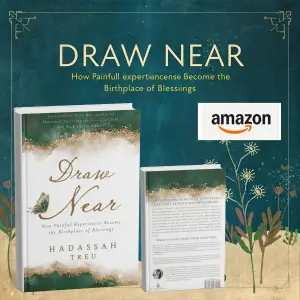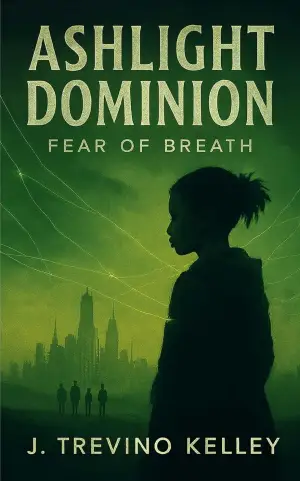Welsh slang often leaves people scratching their heads and unsure about the conversation. The richness and uniqueness of Welsh slang make it a delightful challenge for language learners, including native speakers. So, what exactly comprises Welsh slang, and why is it so essential to grasp it? A straightforward answer: Welsh slang shapes the culture and offers a window into the daily lives, humor, and identity of Welsh people.
Table of Contents
What is Welsh Slang?
Welsh slang includes informal words and phrases that native Welsh speakers often use in everyday conversation. It typically incorporates elements from both the Welsh and English languages, reflecting the bilingual nature of many Welsh communities. While some phrases may appear familiar, their meanings can often be quite different from what you’d expect.
The Basics of Welsh Slang
Understanding and using Welsh slang can enhance your communication with locals and give you a deeper appreciation for the culture.
The Language of Everyday Life
In Wales, many words and expressions have become part of everyday conversations. For instance, “bwtch” means “little one” or “child” and can be an endearing term. Imagine a grandmother doting over her grandchildren, calling them her “bwtches.” This term reflects warmth and affection, embodying the familial relationships common in Welsh society.
If you’re ever invited for a pint in Wales and hear someone say, “Wyt ti’n befo?”, don’t worry; they’re not speaking gibberish! This phrase means, “Are you alright?” Understanding these commonly used phrases can lead to more genuine interactions with the locals.
Common Welsh Slang Terms
Let’s dive into some of the more popular Welsh slang terms that you might encounter, whether you’re visiting Wales or chatting with Welsh friends.
“Cwtch”
This term is an affectionate word that means “a hug” or “a cuddle.” It’s not just a physical action; it also conveys a sense of warmth and safety. Imagine you’re visiting a friend in Wales. When you arrive, they say, “Come here for a cwtch!” This phrase indicates not just a physical embrace, but an invitation to feel welcomed and cherished.
“Bendith y mamau”
The phrase translates to “the blessing of mothers.” Many people use this phrase to describe something that brings help or good fortune. Imagine hearing someone say, “That new job is a bendith y mamau!” This expression signals that the opportunity brings great luck, much like receiving support from loved ones.
“Diolch”
While not exclusive to slang, this word means “thank you” and is a fundamental part of everyday conversations. It’s common to hear it after buying something or receiving a favor. A tourist might say, “Diolch!” with a smile after enjoying a local meal, seamlessly integrating into the friendly Welsh atmosphere.
“Tidy”
The word “tidy” shows satisfaction or approval. When a local shares a favorite spot and likes what they see, they might comment, “Tidy!” This response works for a beautiful view or an exciting plan.
Slang by Region
Welsh slang isn’t uniform; it varies by region, reflecting local culture and history. Here’s how slang might differ from one part of Wales to another.
South Wales
In South Wales, particularly Cardiff, you might hear someone say “Butti” as a term of endearment among friends. It’s akin to saying “mate” or “chum.” A conversation might go like this:
- “Alright, butti? Fancy a pint?”
- “Sounds good, but where are we going?”
North Wales
Conversely, in North Wales, slang can carry unique local flavors. The term “Mun” is frequently used in the same way as “mate” or “dude.” A conversation example:
- “Hey, mun! Have you seen that new café down the street?”
- “Yeah, I’ve been there! It’s quality.”
West Wales
In West Wales, you might frequently hear the term “Hen” as a form of address for a woman, akin to “love” or “dear.” You may overhear a conversation like:
- “How’s it going, hen?”
- “Good, thanks! Just busy with work!”
Useful Welsh Slang for Travelers
Traveling through Wales? Knowing some essential Welsh slang phrases can drastically improve your experience. Here’s a handy list to get you started:
Greetings and Basic Communication
Shwmae? – “How are you?”
This greeting is a friendly way to greet someone. Using it can make you feel more connected to the locals.
Dim Problem! – “No problem!”
Use this phrase to offer help or to reassure someone that everything is fine.
Bore da – “Good morning”
This greeting sets a cheerful tone for early conversations.
Nos da – “Goodnight”
Ideal for wrapping up your day in a friendly manner.
Social Expressions
Wales is known for its warmth and sociability, so incorporating slang will help you engage more easily.
Lush! – “Lovely” or “Fantastic’
If you enjoy something, share your enthusiasm with this expressive term.
Gormless – “Clueless” or “Dumb”
A lighthearted way to joke among friends about someone acting a bit silly.
Maff – “Nonsense”
Instead of calling something bogus, you can use a local phrase to make your point more colorful.
Cultural References in Welsh Slang
Welsh slang is not just a collection of random words; it’s rich with cultural references that provide insight into Welsh history and society.
Sporting Influence
Sports hold a prominent place in Welsh culture, and slang often ties to rugby, a topic that fills many conversations. For instance, “Rugby” itself can take on a life of its own in Welsh slang, with playful terms like “gogledd” referring to a player from North Wales or “Yma o Hyd,” a famous chant that means “Still Here,” echoing pride in Welsh identity and perseverance, particularly during sports matches.
Imagine being in a pub during a rugby match and joining in as someone enthusiastically shouts “Yma o Hyd!” – instantly, you’re swept up in the camaraderie, feeling like you’re part of the action.
Humor and Wit
Quick wit defines Welsh humor, evident in their slang phrases. Take, for instance:
- Sossidge – Used humorously to refer to someone who is not too bright, but in an endearing way.
- Cackhanded – Describing someone as clumsy. It’s an entertaining way to describe that friend who always trips over their own feet.
- Chuff – A term that holds various meanings, primarily used to express annoyance or humor. For example, if someone shows up late again, a simple “What a chuff!” can convey your exasperation with a humorous touch.
Welsh Slang in Pop Culture
Welsh slang has made its way into pop culture, further promoting the language and its vibrancy. Certain television shows and films have highlighted these colorful phrases, giving non-Welsh speakers a taste of the lingo.
Television
“Keeping Faith” is a popular Welsh TV show featuring characters who use slang naturally in their dialogue. This show provides an immersive experience for viewers. Watching characters communicate informally creates an organic understanding of the slang and fosters a connection to Welsh culture.
Music
Welsh music groups like Stereophonics and Catfish and the Bottlemen also integrate slang into their lyrics, providing catchy tunes that offer a glimpse into the everyday lives of Welsh people. Their songs might include references to local expressions, making them relatable to their audience.
The Evolution of Welsh Slang
Language is fluid, evolving as society changes. Welsh slang is no different. Recent slang introduces new terms, fueled by social media and popular trends.
Digital Age Contributions
In the digital age, slang spreads like wildfire across social platforms, reshaping the way people communicate. Words like “lit” or “fam” did not start as Welsh terms, but many young people now use them in everyday conversations. The blend of traditional and modern lingo creates a unique dialect that reflects current culture.
Consider young people texting each other, mixing traditional Welsh slang with modern slang, a linguist’s dream! Bringing new life to communication, it showcases Wales’ ability to adapt while keeping its identity intact.
Resources for Learning Welsh Slang
Diving into Welsh slang can seem daunting, but various resources can help you navigate this colorful language.
Online Communities and Apps
- Welsh Language Apps: Apps like Duolingo offer Welsh courses, but some focus specifically on slang and informal usage. Consider engaging with those who facilitate conversational practice.
- Social Media Groups: Join online groups or forums focusing on the Welsh language and culture to get real-time slang updates. This approach helps you use phrases that locals actually understand and use.
- Local Meet-ups: Joining groups that gather in person offers a chance to practice slang with others in a relaxed setting. This real-world application can significantly enhance retention.
Books and Guides
Numerous guidebooks delve specifically into Welsh slang. Titles like “The Ultimate Welsh Slang Dictionary” or “Cymraeg for Everyone” offer thorough breakdowns and examples. These resources can prove invaluable as you immerse yourself in the language.
How to Use Welsh Slang Effectively
Using slang can elevate your conversations, but context is essential. Here are a few tips on incorporating Welsh slang naturally.
Start Simple
Begin with basic phrases like “Diolch” or “Tidy.” These are easy to remember and will enhance your interactions right away.
Observe Local Usage
When you visit Wales or interact with Welsh speakers, observe how they use slang. Note the situations in which specific terms might be appropriate. This observation can help reinforce your understanding.
Don’t Fear Mistakes
Language learning is all about making mistakes. If you accidentally say the wrong term, laugh it off and use it as a learning opportunity. Welsh speakers usually respond with friendliness and patience, and many will offer helpful corrections.
Embracing the Tone of Welsh Slang
Welsh slang creates a sense of community and camaraderie. The phrases often convey warmth, affection, and friendly humor. Engaging with Welsh slang is not just about the words; it’s also about embodying the spirit of Wales.
Use Humor
Many slang phrases have a lighthearted quality that indicates a relaxed atmosphere. Don’t hesitate to include some humor when you use slang. For instance, if you use “Cwtch” in a conversation, it might not just be to hug; it can also set the tone for a friendly exchange.
Make Connections
When using slang, you’re also participating in a cultural dialogue. Try to connect with the people around you through language. This connection brings a richer experience to interactions and helps any group feel more welcoming, even from far away.
Additional Information
Welsh slang is a treasure trove of quirky expressions and terms that can leave outsiders scratching their heads.
- Cwtch: This word means “to cuddle” or “to snuggle,” but it’s more than just a physical act; it conveys a sense of warmth and safety. If someone offers you a cwtch, consider yourself lucky.
- Pob lwc: Often heard when people say goodbye, it translates to “good luck,” but it’s more commonly used to wish someone well, especially before they embark on something big.
- Bendithion: This term means “blessings.” In everyday conversation, you might hear it as a heartfelt way of expressing good wishes or sentiments towards someone’s endeavors.
- Dwi’n deall: Directly translating to “I understand,” this phrase can be a surprisingly versatile response in conversation, often used to express agreement or acknowledgment.
- Sgrwtch: This delightful word describes the act of scratching, often used when talking about pets or uncomfortable itches, and it is bound to bring a smile to your face.
- Hyfryd: This word means “lovely” and can be used to describe anything from the weather to a delicious meal. Hearing someone say “hyfryd” immediately elevates the vibe of any conversation.
- Tidy: In Welsh slang, “tidy” is an adjective used to mean “great” or “fantastic.” So when someone calls your work tidy, that person pays you a compliment, not hinting that your desk needs organizing.
- Pinc: This cheeky term for “pink” can refer to anything from a color to a playful way of describing someone’s personality—it’s a fun addition to conversation.
- Fwl: A word meaning “silly” or “foolish,” this slang term can be used in a lighthearted manner among friends, showing that you’re comfortable enough to poke fun.
- Gwaed: This word means “blood,” but in slang, it could refer to close friendship, as in saying someone is “like family.” You might hear it among people who consider themselves part of a tight-knit group.
Frequently Asked Questions (FAQs) Related to Welsh Slang
Q. What does “chip butty” mean?
A. A “chip butty” is a sandwich made with chips (fries) stuffed between two slices of bread. It’s a popular snack in Wales.
Q. What is a “cwtch”?
A. A “cwtch” is a term for a hug or a cuddle, but it also refers to a cozy place. It’s one of the most cherished words in Welsh culture.
Q. What does “tidy” mean?
A. In Welsh slang, “tidy” means something is good or impressive. For example, “That party was tidy!”
Q. What does “llan” mean?
A. “Llan” refers to a church or a location associated with a church. You’ll find it in many place names, like “Llanelli” or “Llandudno.”
Q. What is a “bunch of grapes” in Welsh slang?
A. In Welsh slang, a “bunch of grapes” means a group of friends. It emphasizes camaraderie among pals.
Q. What does “faff” mean?
A. “Faff” means to waste time or be inefficient. You might say, “Stop faffing about and get to work!”
Q. What does “gog” refer to?
A. “Gog” is short for “Gogledd,” which means North in Welsh. It often describes people or things from North Wales.
Q. What does “peng” mean?
A. “Peng” is a term used to describe someone or something attractive. It’s often used informally among friends.
Q. What does “suss” mean in Welsh slang?
A. To “suss” something out means to figure it out or understand it. For example, “I finally sussed out how to solve that puzzle!”
Q. What does it mean to “have a proper tidy”?
A. The phrase “have a proper tidy” means cleaning or organizing something thoroughly. It’s the Welsh way of saying it’s time to get things in order.
Conclusion
Welsh slang adds a lively and colorful layer to the language, showcasing the culture and humor of Wales. From unique expressions to humorous phrases, incorporating slang into your vocabulary can spice up conversations and help you connect with locals. Embrace these terms, and don’t be afraid to sprinkle them into your speech. Whether you’re planning a visit to Wales or want to impress your friends, understanding Welsh slang is a fun way to appreciate the rich linguistic heritage of this vibrant region. So, get out there and start chatting like a true Welshie!







